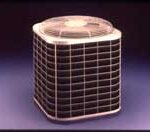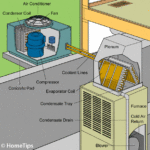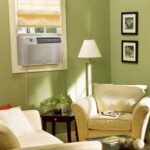Are multiple room air conditioners causing your electricity bills to skyrocket? Or, perhaps worse, is your house virtually unlivable during summer because of the heat and/or humidity? Maybe it’s time to consider central air conditioning.
Central air conditioning, also called “central air” in the United States and “air-con” in the United Kingdom, is a system that cools more than one room in a house (in most cases, the entire structure).
A conventional air-conditioning system blows cooled and/or dehumidified air through ductwork to deliver it throughout the interior spaces. In most cases, it employs an air handler (blower) and ductwork of a forced-air furnace for this cool-air delivery.
Buying a Central Air Conditioner
A home air conditioner is an appliance that will have a huge impact on your quality of life and—depending upon how carefully you select one—your utility bills. Running air conditioning can be expensive, so it pays to do your homework when choosing an AC unit.
For example, it’s important to buy a unit that is large enough to cool your home but is not unnecessarily expensive or too large to operate efficiently. Cost, energy efficiency, capacity, and features are all covered in depth in these articles on HomeTips:
• 5 Questions Your HVAC Contractor Should Ask You
• Central Air Conditioner Buying Guide
• How Much Does a Central Air Conditioner Cost?
You might also want to consider whether an alternative to central air conditioning might be a better answer to your needs. These articles are worth checking out:
• Central Air Conditioning vs Window AC — Which Is Best?
• Heat Pumps Buying Guide
• Evaporative Air Coolers (Swamp Coolers) Buying Guide
• Ductless Mini-Split Air Conditioner Buying & Installing
How Central AC Works
Air conditioners use refrigeration principles to cool the air. As discussed in How a Central Air Conditioner Works, a condenser, compressor, and evaporator work together to do this job.
A typical split-system whole-house AC air conditioner has a compressor and condenser located outdoors and an evaporator unit mounted on the air handler or furnace, as shown in the illustration below.
A package AC system combines all of these components in one outdoor unit.
A central air unit draws room air through return-air ductwork, cools, dehumidifies, and filters it, and then blows it back into the rooms through air-supply ductwork. The AC unit is controlled by a thermostat, which turns the unit on and off as needed.
• How a Central Air Conditioner Works
• How Your Home’s Heating & Cooling System Works
• What Is Relative Humidity and Why Is It Important to Your Home?
Central AC Problems & Repairs
If your home has a central air conditioner that is not working properly, it pays to do some troubleshooting on your own before calling a professional to fix the problem.
An air conditioner that doesn’t cool very well may just need a little basic maintenance. A unit that doesn’t turn on may just need to have a circuit breaker flipped. In many cases, the problem is with the thermostat, not the air conditioner.
For help with troubleshooting and repairing air-conditioning problems, see:
• AC Not Working | Central Air Conditioning Repair & Troubleshooting
• How to Prepare and Clean Your Central Air Conditioner for Summer
• How to Replace a Furnace, AC or Heat Pump Filter
• Room Temperature Too Hot, Too Cold
• Maintenance Checklist for Central Heating Systems
Central AC Cost & Installation
Almost all central air conditioners are installed by professionals—the installation is quoted along with the cost of the equipment.
Be aware that retrofitting an existing home with central air conditioning may be a difficult and expensive project. Ductwork must run from the air handler to the rooms and must usually be routed through the attic or under the floor.
Small, relatively easy installations typically run well over $5,000; the only realistic way to get an idea of cost is to request free estimates from local air-conditioning companies (we suggest you get three bids).
If your home or your budget is not suited to this type of installation, buying one or more room air conditioners may be a better solution. For more about room air conditioners, see Air Conditioners (Window & Room).
This FREE service will help you find a qualified local AC professional.



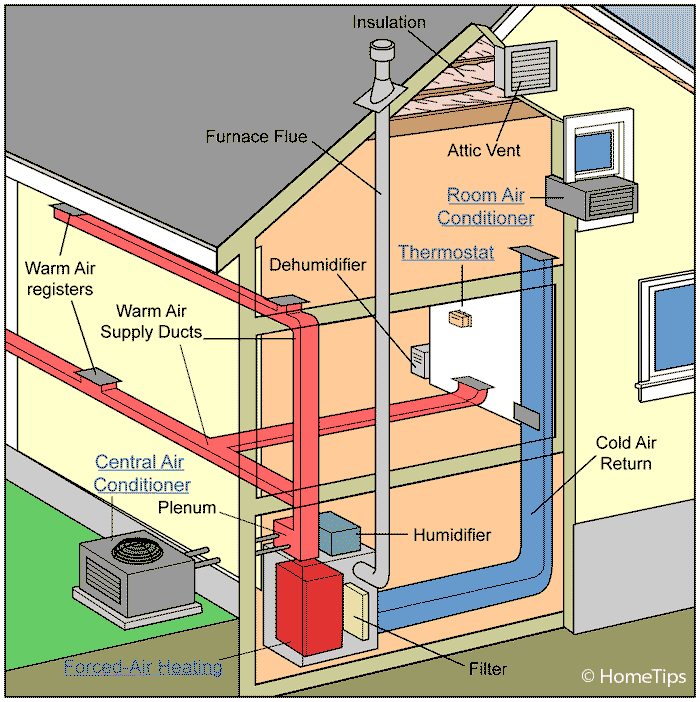
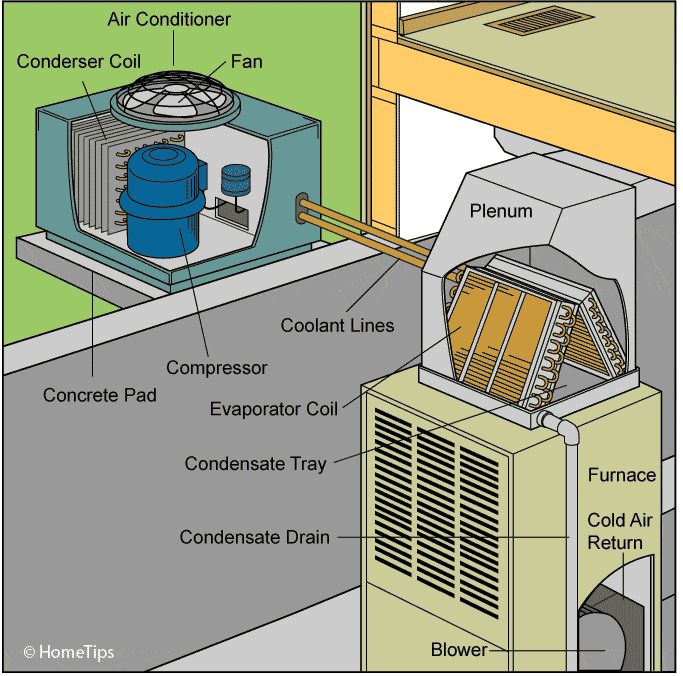




 Don Vandervort writes or edits every article at HomeTips. Don has:
Don Vandervort writes or edits every article at HomeTips. Don has:

